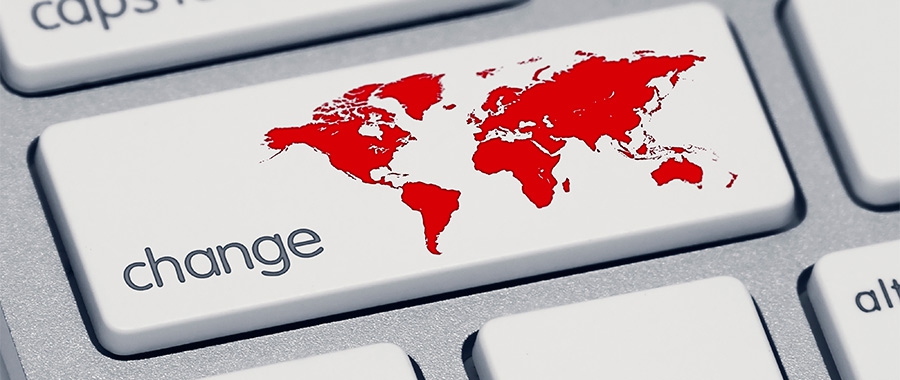The views expressed in our content reflect individual perspectives and do not represent the authoritative views of the Baha'i Faith.
Lately, because I help facilitate a Baha’i-inspired youth group of teens and pre-teens, I’ve had to think carefully about the impact of technology on our society’s young people.
As everyone can readily see, the past three decades have witnessed dramatic advancements and innovations with regards to the development and ever-growing complexity of technology. That increased capability and accessibility has exerted a massive influence on the daily lives of individuals from every segment of society – especially the young.
With an impact comparable to the introduction of rock’n’roll in the 1950’s, or video games in the 1970’s, many adults today fear the potential negative implications of technology, particularly the internet, gaming and social media, on younger generations.
In the rise of society’s increasing dependency on technology, experts consider youth – identified as the period between late childhood and adulthood – as one of the most vulnerable populations.
As young people begin to navigate the systems of society while developing their own identities, talents, spiritual perceptions and powers of expression, many fear that they will also fall prey to the rampant, habitual, materialistic, narcissistic, and obsessively harmful behavior that can pervade technological applications, social media and online platforms.
As a facilitator of a Baha’i-inspired junior youth group, which welcomes youth between 11 and 15 from all backgrounds and Faiths, I never felt old until I was forced to take a device away from a junior youth in one of our recent gatherings. I took it away because it distracted that child, and the other participants, from taking part in the group activity. Today, most parents face the same dilemma. Ironically, adults, including myself, are not immune to the addictive nature of technology, either. I’ve definitely fallen victim to the endless scroll on my news feed, my immediately reactive approach to notifications, the instant gratification tech can seemingly provide, and the comforts of having immediate access to products and information.
But let’s face it, unless we run to the mountains, live off the grid, and unplug from society forever, the advancement of technology won’t weaken or disappear.
The Baha’i teachings have some important things to say about this phenomenon. As the Universal House of Justice wrote, the advancement of technology represents a natural and fundamental feature of human progress – and while we should use it in a manner that fosters human progress, it has become increasingly apparent that it also presents an “immense challenge:”
… technological advancement is integral to the emergence of a global civilization. Indeed, the Internet is a manifestation of a development anticipated by the Guardian [of the Baha’i Faith, Shoghi Effendi] when, in describing the characteristics of a unified humanity, he foresaw that a “mechanism of world inter-communication will be devised, embracing the whole planet, freed from national hindrances and restrictions, and functioning with marvellous swiftness and perfect regularity.” Yet, learning to utilize the Internet in a manner conducive to material and spiritual progress is an immense challenge … – From a letter dated 9 October 2015 written on behalf of the Universal House of Justice to a National Spiritual Assembly.
So, rather than fear technology or prohibit access, Baha’is recognize that we need to learn to work with it as a tool, in a manner that constructively advances our material and spiritual progress.
The prophet and founder of the Baha’i Faith, Baha’u’llah, highlighted the capacity for arts, crafts, and sciences to uplift the world of being, as long as the intention behind their use and development remains pure and places the well-being of humanity at the core:
Arts, crafts and sciences uplift the world of being, and are conducive to its exaltation. Knowledge is as wings to man’s life, and a ladder for his ascent. Its acquisition is incumbent upon everyone. The knowledge of such sciences, however, should be acquired as can profit the peoples of the earth, and not those which begin with words and end with words. – Baha’u’llah, Epistle to the Son of the Wolf, p. 26.
So what if we took a new approach? What if we first learned how to accompany all individuals, communities and institutions to contribute to technological spaces in a manner conducive to the spiritual and material progress of society? What if adults became examples for young people, learning and providing strategies that utilize, adapt and regulate our own use of technology to promote the best interests of society? What if we all learned to effectively navigate and neutralize the potentially harmful impacts of technology, and make positive spiritual choices in order to effectively contribute to unity and the building of a new world?
In order to understand how to fully and effectively utilize media and technology, regardless of how we use it or contribute to it, it helps to first understand its capacity for uplifting humanity. Regarding the potential for news and technology to reflect the truth, nurture diversity, and promote justice and equity, Baha’u’llah wrote:
In this Day the secrets of the earth are laid bare before the eyes of men. The pages of swiftly-appearing newspapers are indeed the mirror of the world. They reflect the deeds and the pursuits of divers peoples and kindreds. They both reflect them and make them known. They are a mirror endowed with hearing, sight and speech. This is an amazing and potent phenomenon. However, it behoveth the writers thereof to be purged from the promptings of evil passions and desires and to be attired with the raiment of justice and equity. They should enquire into situations as much as possible and ascertain the facts, then set them down in writing. – Baha’u’llah, Tablets of Baha’u’llah, p. 39.
In this series of essays, we’ll explore guidance and strategies that offer food for thought regarding the healthy integration of technology in our daily lives. We’ll explore how to constructively use things like the internet, gaming, and social media to contribute effectively and constructively to the building of a new world. Please follow along as we find new ways to utilize technology for the higher purposes of humanity.
















Comments
Sign in or create an account
Continue with Googleor